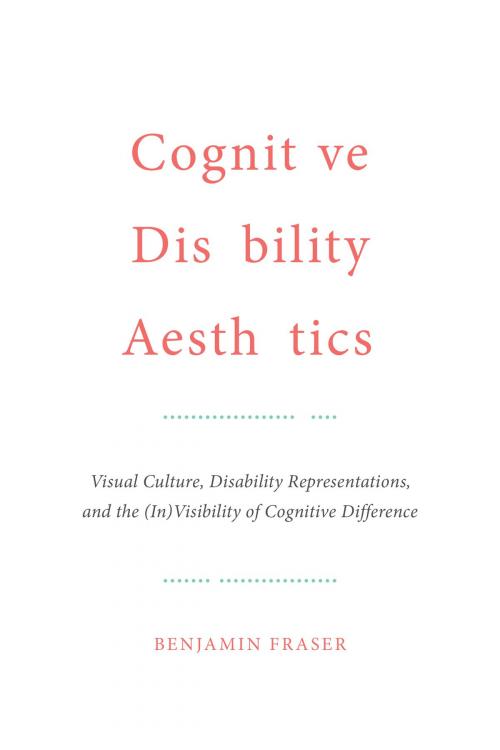Cognitive Disability Aesthetics
Visual Culture, Disability Representations, and the (In)Visibility of Cognitive Difference
Fiction & Literature, Literary Theory & Criticism, European, Spanish & Portuguese, Nonfiction, Social & Cultural Studies, Social Science, Disability| Author: | Benjamin Fraser | ISBN: | 9781487515126 |
| Publisher: | University of Toronto Press, Scholarly Publishing Division | Publication: | May 4, 2018 |
| Imprint: | Language: | English |
| Author: | Benjamin Fraser |
| ISBN: | 9781487515126 |
| Publisher: | University of Toronto Press, Scholarly Publishing Division |
| Publication: | May 4, 2018 |
| Imprint: | |
| Language: | English |
Cognitive Disability Aesthetics explores the invisibility of cognitive disability in theoretical, historical, social, and cultural contexts. Benjamin Fraser’s cutting edge research and analysis signals a second-wave in disability studies that prioritizes cognition. Fraser expands upon previous research into physical disability representations and focuses on those disabilities that tend to be least visible in society (autism, Down syndrome, Alzheimer's disease, schizophrenia). Moving beyond established literary approaches analyzing prose representations of disability, the book explores how iconic and indexical modes of signification operate in visual texts. Taking on cognitive disability representations in a range of visual media (painting, cinema, and graphic novels), Fraser showcases the value of returning to impairment discourse. Cognitive Disability Aesthetics successfully reconfigures disability studies in the humanities and exposes the chasm that exists between Anglophone disability studies and disability studies in the Hispanic world.
Cognitive Disability Aesthetics explores the invisibility of cognitive disability in theoretical, historical, social, and cultural contexts. Benjamin Fraser’s cutting edge research and analysis signals a second-wave in disability studies that prioritizes cognition. Fraser expands upon previous research into physical disability representations and focuses on those disabilities that tend to be least visible in society (autism, Down syndrome, Alzheimer's disease, schizophrenia). Moving beyond established literary approaches analyzing prose representations of disability, the book explores how iconic and indexical modes of signification operate in visual texts. Taking on cognitive disability representations in a range of visual media (painting, cinema, and graphic novels), Fraser showcases the value of returning to impairment discourse. Cognitive Disability Aesthetics successfully reconfigures disability studies in the humanities and exposes the chasm that exists between Anglophone disability studies and disability studies in the Hispanic world.















